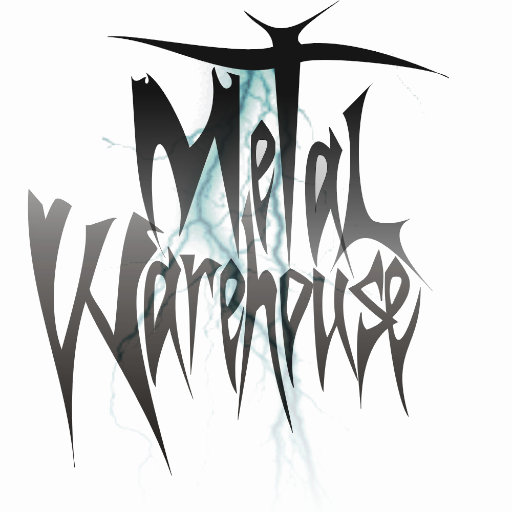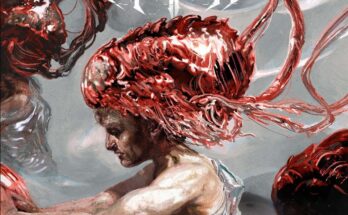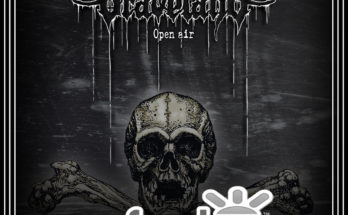 Warner Bros.
Warner Bros.
It was a giant misstep from its inception all the way until its birth. Black Sabbath’s twelfth studio album, Seventh Star, which came out on Jan. 28, 1986, was never supposed to be a Sabbath record. After bassist Geezer Butler left the band in 1984 following the “Born Again” tour, guitarist Tony Iommi decided to write a solo album and then after the dust cleared, put Black Sabbath back together.
In fact, Iommi intentionally penned songs that didn’t sound like Black Sabbath in order to expand his horizons. Overall, Seventh Star is a basic, hard rock record with one foot firmly planted in blues rock and the other slipping between the styles of Rainbow and Foreigner. The original plan was to hire an all-star lineup of guest vocalists — Robert Plant, Rob Halford, David Coverdale and others – but the logistics of tracking down the singers and getting them into the studio proved impossible. So Iommi recruited Jeff Fenholt, whose only claim to fame was playing the lead role in Jesus Christ Superstar. (Coincidentally, Deep Purple’s original vocalist Ian Gillan, who sang on Sabbath’s Born Again, also played the lead role in Jesus Christ Superstar.)
Iommi recorded several demos with Fenholt, but producer Jeff Glixman didn’t feel his voice fit the songs and convinced Iommi to let him go and hire another ex-Deep Purple singer, Glenn Hughes. While Iommi and Hughes were working on new songs Fenholt reappeared in an unexpected way; he became a televangelist and did an interview with the New York Times about the evils of rock and roll.
“They wrote that he saw the light, rejected evil and all this bollocks,” Iommi wrote in his memoir Iron Man. “We were right back into the Satanism thing because Fenholt was going on about it.”
Undaunted, Iommi persevered, contacting Butler to try to get him to play on the record. His wife and manager Gloria agreed that it would be a good move, then the next thing Iommi knew, Geezer had signed on with Ozzy Osbourne to play in his solo group, leaving Iommi as the only original member of Sabbath to play on Seventh Star. The rest of the band consisted of Hughes, bassist Dave Spitz, drummer Eric Singer and keyboardist Geoff Nicholls.
While Hughes sounded powerful and versatile on the album, Iommi said working with him wasn’t much fun. “He did ten times more coke than me,” the guitarist wrote. “It just turned into a nightmare. He’d go: ‘I’ve got this idea, I’ve got this idea!’ He drove you up the wall.”
Somehow, Iommi and Glixman got through the sessions, which were recorded at Cheshire Sound Studios in Atlanta. In August 1985 they wrapped up the album. The guitarist figured it was a good solo effort and he would do some small-scale touring to support it, then move on to the next project. But Black Sabbath’s manager Don Arden (Sharon Osbourne’s father) and Warner Bros. Records felt Seventh Star should be released as a Black Sabbath album. Not only would it get the band back on the road and in front of fans, it would complete their contract with the label.
Since Iommi wanted to point out to fans that this wasn’t a typical Black Sabbath album, Warner Bros. released it as “Black Sabbath Featuring Tony Iommi.” It was hardly the kind of compromise the guitarist was hoping for. “Neither I nor Glenn were pleased with [that] because we felt we weren’t doing the record justice presenting it this way. And to go out and play ‘War Pigs’ and ‘Iron Man’ — it just wasn’t right.”
Regardless of Iommi’s discontentment, management booked a Black Sabbath tour that featured Glenn Hughes as lead vocalist. Even before the tour began the singer’s drug use caused problems. He had to be dragged onstage for the first show and on another date he had to be wrestled away from drug dealers in order to even make it to the venue. By the third gig, Hughes was suffering from a broken nose, allegedly inflicted by tour manager John Downing when Hughes was being particularly uncooperative. The injury rendered him unable to sing properly and the cocaine he had been aggressively snorting didn’t help his voice any.
Realizing the Seventh Star tour — which featured support acts Anthrax and W.A.S.P. – was burning out fast, Arden suggested that Sabbath cancel the rest of the tour. But Iommi was afraid the band would not just lose money, they’d get sued. So they hired an understudy for Hughes, Ray Gillen and kept him in the wings until the inevitable occurred. After a show in Worcester, Mass. on March 26, Iommi fired Hughes and the band soldiered on with Gillen.
The tour didn’t significantly boost record sales, and neither did the video for “No Stranger to Love,” which depicted Iommi alongside Denise Crosby, better known as Tasha Yar in Star Trek: The Next Generation. Seventh Star peaked on the Billboard album chart at No. 78 and quickly dropped.
Loudwire contributor Jon Wiederhorn is the primary author of Louder Than Hell: The Definitive Oral History of Metal, as well as the co-author of Scott Ian’s autobiography, I’m the Man: The Story of That Guy From Anthrax, and Al Jourgensen’s autobiography, Ministry: The Lost Gospels According to Al Jourgensen.
See Where Tony Iommi Ranks Among the 50 Best Hard Rock + Metal Guitarists
You Think You Know Black Sabbath?
Subscribe to Loudwire on
![]()
Source: Loudwire.com


